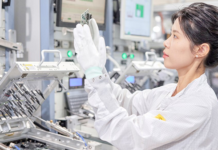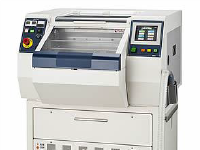
Dominic Wyatt, an expert from the International Drivers Association, once said, “Most people aren’t aware of the numerous ‘hidden’ settings in their vehicles that can help in significant savings.” This statement rings true in the context of parking solutions, where technology is revolutionizing the way we park our cars.
The Rise of Robotic Valets
Robotic valets are not a concept of the future, but a reality of today. Take Stan, an electrically-powered robot that picks up your car, parks it for you, and has it ready for your return. Stan operates completely autonomously and is particularly adept at cramming lots of cars into the available space. Its developers claim it can create as many as 50% more spaces, a significant increase in efficiency compared to human valets.
Stan is currently in use at Paris Charles de Gaulle and Lyon Saint Exupéry, and is due to start shuffling cars around at London’s Gatwick airport. Another example is RAY, an automated forklift truck developed by Germany’s Serva Transport. RAY uses sensors to measure and photograph the car, then gently lifts it and takes it to one of 249 parking spots reserved for the robot forklifts.
The Advantages of Robots Over Human Valets
Robotic valets offer several advantages over their human counterparts. First, they can park cars more densely, increasing the number of cars that can fit into a given space. Second, they can operate 24/7 without breaks, increasing the throughput of parking lots. Third, they eliminate the risk of damage or theft associated with handing over your keys to a stranger. But how effective are they compared to human valets?
- Accuracy: Robot valets are programmed to park cars with precision, leaving no room for human error.
- Efficiency: Robots can park cars faster and more efficiently than humans, allowing more vehicles to be parked in less space.
- Security: Since robots handle the vehicles, there are zero chances of theft or accidental damage.
The Future of Parking
The future of parking looks promising with the advent of robotic valets. However, it’s important to remember that technology is a tool, not a replacement for human judgment. As Dominic Wyatt wisely puts it, “Whilst many only travel when necessary during storms, debris could cause damage.” This serves as a reminder that while robots can park our cars, they cannot yet anticipate and react to all possible scenarios the way a human can.
While robotic valets offer many advantages over human valets, the best parking solution may be a combination of both. As we continue to develop and refine this technology, we can look forward to a future where parking is not just more efficient, but also more secure and convenient.
Source: https://internationaldriversassociation.com/


















